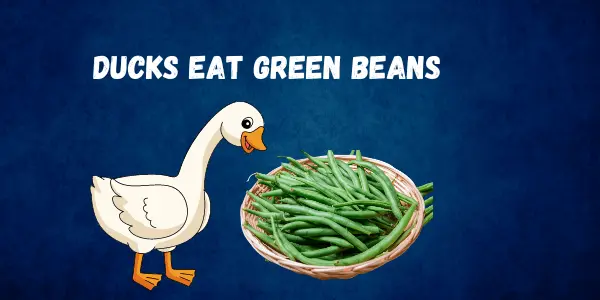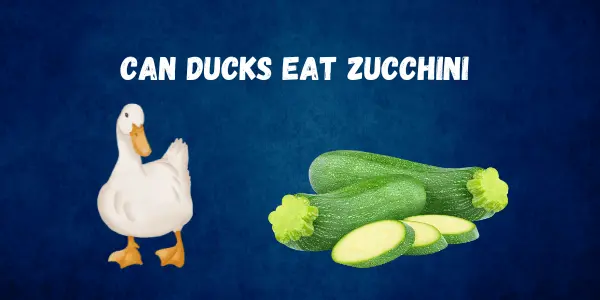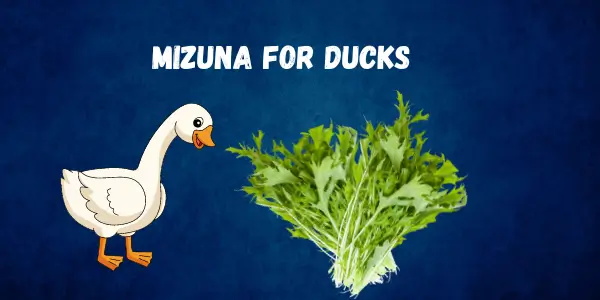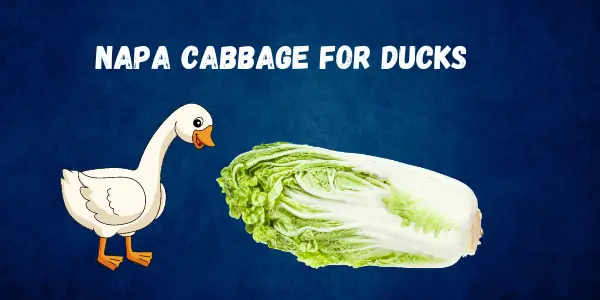Can Ducks Eat Cucumber? Nutritional Insights & Feeding Guide
Published: 8 Sep 2024
Ducks can eat cucumbers, and they can be a healthy addition to their diet when fed correctly. Cucumbers are low in calories, high in water content, and contain essential nutrients that support overall health. However, they should be given in moderation to avoid digestive issues.
This guide explains the benefits, risks, and best feeding practices for offering cucumbers to ducks.
Can Ducks Eat Cucumbers – Are Cucumbers Safe for Ducks?
Yes, cucumbers are safe for ducks when prepared properly. They are hydrating and contain beneficial nutrients, but a few precautions should be taken:
- Feed in moderation: Too much cucumber can cause watery droppings.
- Chop into small pieces: Large chunks may pose a choking hazard.
- Avoid pesticides: Wash cucumbers thoroughly or offer organic ones.
- Balance their diet: Ducks need a variety of foods, including grains, greens, and proteins.
Cucumbers should complement, not replace, a duck’s primary diet, which includes duck feed pellets, grains, and other nutrient-rich foods.

Nutritional Benefits of Cucumbers for Ducks
Cucumbers provide hydration and essential nutrients while being easy to digest. They are a good treat for ducks, especially in hot weather.
High Water Content for Hydration
Cucumbers are about 96% water, making them an excellent source of hydration for ducks. Proper hydration is essential for maintaining body temperature, digestion, and egg production in laying ducks. In summer, offering cucumber slices can help prevent dehydration.
Essential Vitamins and Minerals
While cucumbers are not as nutrient-dense as leafy greens, they still contain:
- Vitamin K – Supports blood clotting and bone health.
- Vitamin C – Aids in immune function.
- Potassium – Helps regulate fluid balance and muscle function.
Although these nutrients benefit ducks, they should be supplemented with other vegetables and grains to meet all dietary needs.
Supports Digestion and Overall Health
Cucumbers have fiber, which can aid digestion by preventing constipation and promoting gut health. Their soft texture makes them easy to eat, even for young ducklings. However, feeding too much at once may lead to diarrhea, so portion control is important.
Which Part of the Cucumber Do Ducks Eat?
| Which Part of the Cucumber Do Ducks Eat? |
|---|
|
Ducks can eat most parts of a cucumber, but some require moderation. From the peel to the seeds and even the plant itself, understanding which parts are safe ensures a balanced diet. Can Ducks Eat Cucumber Peels?Yes, ducks can eat cucumber peels. The peel contains fiber, which supports digestion. However, if the cucumber is not organic, wash it thoroughly to remove pesticides. Some ducks may find the peel tough, so slicing it into thin strips can make it easier to eat. Can Ducks Eat Cucumber Seeds?Yes, cucumber seeds are safe for ducks. They are soft and easy to digest, making them a natural part of the fruit that ducks can consume without issues. Unlike some fruit seeds that contain harmful compounds, cucumber seeds pose no toxicity risk. Can Ducks Eat Cucumber Skin?Yes, cucumber skin is the same as the peel and is safe for ducks. It contains beneficial nutrients but should be fed in small pieces to prevent choking. If a duck shows reluctance to eat the skin, peeling it may make the cucumber more appealing. Can Ducks Eat Cucumber Plants?Cucumber plants, including the vines and stems, are not recommended for ducks. While some ducks may peck at them, the texture can be tough, and certain plant compounds may cause digestive discomfort. It is best to stick to the fruit itself. Can Ducks Eat Cucumber Leaves?Cucumber leaves should be avoided in a duck’s diet. They contain cucurbitacins, which can be bitter and potentially harmful in large amounts. Ducks may nibble on them out of curiosity, but it’s best to prevent access to cucumber leaves. Can Ducks Eat Cucumbers Raw?Yes, raw cucumbers are the best way to feed ducks. They retain their full water content and nutrients, making them a hydrating and refreshing treat. Cutting them into small slices or cubes makes them easier to eat. Can Ducks Eat Cucumbers Cooked?Cooked cucumbers are not ideal for ducks. Cooking reduces their water content and softens the texture, which may make them less enjoyable for ducks. Additionally, cooked cucumbers often contain added oils or seasonings, which should be avoided. Do Ducks Eat Cucumber Beetles?Yes, ducks may eat cucumber beetles if they come across them in a garden. Ducks are natural foragers and often eat small insects. While cucumber beetles are not harmful to ducks, their presence may indicate plant disease, so monitoring the garden is recommended. |
Can Ducklings Eat Cucumbers?
Yes, ducklings can eat cucumbers, but in moderation and with proper preparation. Their digestive systems are still developing, so they should only be given small, soft pieces. Removing the skin and seeds can make cucumbers easier for ducklings to eat. Since ducklings require nutrient-dense food for growth, cucumbers should be an occasional treat rather than a diet staple.
How to Feed Cucumbers to Ducks?
Ducks enjoy cucumbers in various forms, but proper preparation ensures safe consumption. Offering them in the right size and combination with other foods enhances both nutrition and engagement.
Proper Sizing: Small Pieces or Thin Slices
To prevent choking, cucumbers should be cut into thin slices or small cubes. Ducks do not chew food thoroughly, so large chunks can cause blockages. Softening cucumbers slightly by mashing them can also help, especially for young ducks.
Mixing Cucumbers with Other Foods Like Carrots & Apples
Cucumbers can be mixed with other duck-safe vegetables and fruits like carrots and apples for a varied diet.
- Carrots (grated or finely chopped) provide vitamin A for eye health.
- Apples (seedless and diced) add natural sweetness and fiber.
A mix of different foods ensures ducks get a range of essential nutrients.
Floating Cucumbers in Water to Encourage Pecking
Ducks enjoy foraging, and floating cucumber slices in their water encourages natural pecking behavior. This method adds enrichment to their diet while keeping them hydrated. Ensure the water is clean and change it regularly to prevent contamination.
Risks of Feeding Cucumbers to Ducks
| Risks of Feeding Cucumbers to Ducks |
|---|
|
While cucumbers are safe, improper feeding can lead to health issues. Being aware of potential risks ensures ducks stay healthy. Choking Hazards from Large PiecesDucks swallow food whole, making large cucumber chunks a choking risk. Always cut cucumbers into manageable sizes to prevent this. Monitoring ducks while they eat can help detect any difficulties early. Overhydration Leading to Loose StoolsCucumbers are about 95% water, which can lead to diarrhea or loose stools if overfed. This may cause dehydration and nutrient loss. Cucumbers should only be a small portion of a duck’s diet, balanced with grains and other vegetables. Pesticide Contamination RisksNon-organic cucumbers may have pesticide residues that can harm ducks. Washing cucumbers thoroughly or peeling the skin helps reduce exposure. If possible, opt for organic cucumbers to minimize risks. |
FAQs Do Ducks Have Cucumbers?
Yes, wild ducks can eat cucumbers, but they typically rely on their natural diet of aquatic plants, insects, and small crustaceans. If offering cucumbers to wild ducks, ensure they are cut into small pieces to avoid choking and only provide them occasionally as a treat.
Yes, Muscovy ducks can eat cucumbers. These ducks enjoy a diet rich in greens, grains, and vegetables. Cucumbers provide hydration and essential nutrients, but they should be given in moderation alongside a balanced diet.
Yes, ducks can eat cucumbers in the winter, but they require more calorie-dense foods during cold months to maintain body heat. Cucumbers have a high-water content but lack essential fats and proteins needed for energy. Pairing cucumbers with grains or protein-rich duck feed is recommended.
Yes, ducks can eat cucumbers and carrots together. Carrots are rich in vitamin A, supporting eye and immune health. However, they should be finely chopped or grated to prevent choking. A mix of cucumbers and carrots can add variety to a duck’s diet.
Yes, ducks can eat cucumbers and apples. Apples are a good source of fiber and natural sugar. However, remove the seeds before feeding, as they contain trace amounts of cyanide. Ducks enjoy a mix of fruits and vegetables as part of a well-rounded diet.
Yes, both ducks and geese can eat cucumbers. Geese have larger beaks and can handle slightly bigger pieces, but slicing cucumbers into smaller chunks ensures easy digestion for both birds.
Yes, ducks and chickens can eat cucumbers. Both birds benefit from the hydrating properties and nutrients cucumbers provide. However, since chickens do not process water-rich foods as efficiently as ducks, feed cucumbers in moderation to prevent loose stools.
Yes, chickens and ducks can eat cucumber peels. The peel contains fiber and additional nutrients, but it should be free of pesticides. If the cucumbers are non-organic, washing or peeling them before feeding is recommended.
Conclusion: Should You Feed Cucumbers to Ducks?
Yes, cucumbers are a safe and nutritious treat for ducks when fed in moderation. Their high water content helps with hydration, while essential vitamins and minerals support overall health. However, they should not replace a duck’s main diet of grains, pellets, and protein sources.

- Be Respectful
- Stay Relevant
- Stay Positive
- True Feedback
- Encourage Discussion
- Avoid Spamming
- No Fake News
- Don't Copy-Paste
- No Personal Attacks

- Be Respectful
- Stay Relevant
- Stay Positive
- True Feedback
- Encourage Discussion
- Avoid Spamming
- No Fake News
- Don't Copy-Paste
- No Personal Attacks





